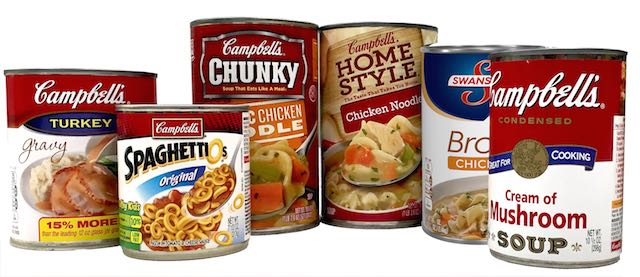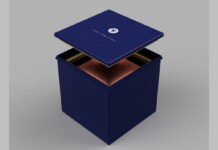 Campbell Soup Company announced last week a plan to phase out cans that are lined with BPA (Bisphenol A).
Campbell Soup Company announced last week a plan to phase out cans that are lined with BPA (Bisphenol A).
The company has already begun using cans with linings made from acrylic or polyester materials and will continue to introduce the new linings across the U.S. and Canadian until the transition is complete in mid-2017.
Campbell first announced its intention to move away from BPA linings in February 2012, in response to consumer feedback. Since then, Campbell has tested hundreds of alternatives. As the company has stated previously, the transition faced a number of technical challenges. This included identifying linings that would ensure the safety of more than 600 different recipes, such as its tomato-based products, which are naturally acidic and can react with some linings over time.
CHECK OUT: Starbucks to Give 5 Million Free Meals to the Hungry This Year
The products that will be packaged in non-BPA lined cans include all varieties of Campbell’s soups and gravies, Swanson broth and SpaghettiOs pasta. The company is on track to have 75 percent of its soup portfolio in non-BPA lined cans by December 2016. The company is also currently testing alternatives to BPA coatings used on other packaging, including aluminum cans used for V8 beverages and metal screw top lids on glass jars. The company is on track to transition these products to a non-BPA solution by the middle of 2017.
CHECK OUT: Maker of OFF! Donates $15M and Cuts Price to Help People Avoid Zika Virus
Campbell is convinced BPA is one of the safest packaging options in the world, citing extensive scientific studies and regulations by the U.S. Food and Drug Administration and many international regulatory agencies.
The widely used synthetic compound has been in commercial use since 1957. BPA exhibits hormone-like properties that raise concern about its suitability in some consumer products and food containers. Since 2008, several governments have investigated its safety, which prompted some retailers to withdraw some products, but never found enough evidence to ban the substance. However, the FDA in the US, the European Union and Canada have all banned BPA use in baby bottles, based on uncertainties.
RELATED: How Big Chains From Walmart to H&M Are Cleaning Up Chemicals
The Endocrine Society said in 2015 that the results of ongoing laboratory research gave grounds for concern about the potential hazards of endocrine-disrupting chemicals – including BPA – in the environment, and that on the basis of the precautionary principle these substances should continue to be assessed and tightly regulated.



















